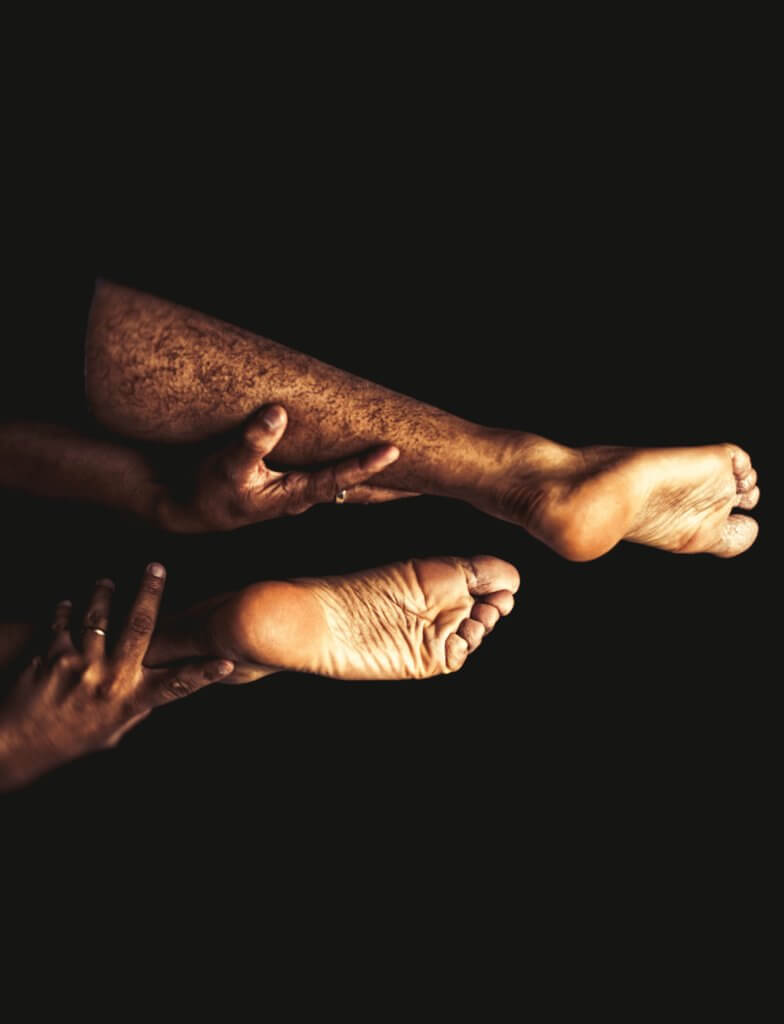If you are nearing the time of life when you’re expecting to start going through menopause, you are probably starting to experience several symptoms that are making your life less enjoyable.
In addition to the mood swings, hot flashes, night sweats and vaginal dryness that menopause brings, you might also be affected by pruritus. (1)
Pruritus is the formal name for itchy skin. This condition is a common complaint that dermatologists handle, and it’s even more prevalent during perimenopause and menopause.

Are You Feeling Itchy?
Symptoms commonly associated with being itchy with menopause include…
- A skin rash that has no apparent cause
- Dry patches of skin, or dry skin all over
- Small bumps on the surface of your skin
- Irritated skin, or skin that is red in colour
- Strange feelings like crawling, tingling or numbness
Many women first encounter this itchiness on their elbows, or in the T-zone of their face. Other common areas include the back, neck, limbs, chest and face.
This itching with menopause can be incredibly uncomfortable and can cause problems in your life, especially if it disrupts your sleep.
What Causes Itchiness During Menopause?
One of the main sex hormones is estrogen, and it plays a vital role in skin health. As your body begins to go through perimenopause or menopause, your hormones begin to shift, and your estrogen levels decline. (2)
This drop in estrogen levels facilitates many changes in your skin. Your body will no longer have sufficient levels of soluble collagen on hand to rejuvenate your skin cells. This in turn means your skin will lose its suppleness. It will no longer bounce back like it once did, and this is due to lower levels of estrogen. (3)

Beyond this, your skin will not be able to produce as much natural oil as it did in your younger years. These natural oils are important because they are what helps to keep your skin naturally moisturized. Due to the loss of oils and collagen, your skin will rapidly begin to thin out, and it won’t retain moisture very well.
This decrease in collagen levels and your body’s ability to produce oils and hold on to moisture can be directly linked to the declining estrogen levels you will experience during perimenopause and menopause.
All of this contributes to the dry, irritating, crawling sensation of pruritus – or itchy skin.
There are many other things that can contribute to having itchy skin, and it’s important to be aware of them. Some are health-related, while others can be attributed to external sources. (4)
If you are suddenly experiencing itchiness, it could actually be due to some other skin condition such as hives or eczema, though that itch is slightly different from the menopause-related pruritus.
Other internal causes can be issues with your nerves brought about by health problems like diabetes or shingles.
This itching could also be indicative of thyroid disorders, liver disease or certain cancers like lymphoma.
If you are experiencing itchy skin along with other problematic symptoms, be sure to speak with your doctor. They can help run tests and determine if this itchiness is simply a symptom of menopause or if there is actually a deeper cause.
External factors that can cause pruritus are allergic reactions to medications, or to bites and stings from insects, or even food allergies. (5)
Remedies
Thankfully, there are many things available to treat pruritus associated with menopause. You can get treatment over-the-counter or on prescription.
You can buy itch creams at just about any drugstore or retailer with a pharmacy. Look for one that has hydrocortisone levels of at least 1%. These creams can offer temporary relief.
If the itch persists and you just can’t handle it, talk to your doctor about treatment options. There are plenty available. (6)
Your doctor might prescribe a topical steroid cream, patch or lotion. These prescription options contain higher levels of hydrocortisone and other corticosteroids that can relieve the pruritus causing you to be itchy.
![]()
Another option your doctor might offer is hormone replacement therapy. This is an option that really gets at the root of the problem, which is the decline in estrogen levels. Hormone replacement therapy is not to be undertaken lightly, though, so be sure to talk it over with your doctor before deciding. (7)
How to Prevent Itchy Skin
Here are a few straightforward ways to help alleviate the symptoms of being itchy due to menopause.
- Stay hydrated. As discussed earlier, one of the reasons your skin is itchy with menopause is because there is simply not enough moisture in your skin. Help it along by staying hydrated!
- Take cooler showers. You might enjoy a steaming hot shower or bath, but that heat is drying out your skin even more. Try to take shorter showers, and make sure they are a bit cooler than you are used to.
- Get your vitamins. Make sure you are getting enough Omega-3 fatty acids, as well as B vitamins. The best source for these is from foods like eggs, walnuts, soy and salmon. If you aren’t getting enough, consider a good multivitamin.
- Put down the scented soaps and lotions. The chemicals used to make the fragrances in soaps and lotions can be harsh to your skin, irritating it even more.
REFERENCES
- https://www.ncbi.nlm.nih.gov/pubmedhealth/PMH0072495/
- https://www.ncbi.nlm.nih.gov/pubmed/11705091
- https://www.ncbi.nlm.nih.gov/pmc/articles/PMC4264279/
- https://www.mayoclinic.org/diseases-conditions/itchy-skin/symptoms-causes/syc-20355006
- https://www.merckmanuals.com/professional/dermatologic-disorders/approach-to-the-dermatologic-patient/itching
- https://www.ncbi.nlm.nih.gov/pmc/articles/PMC2924137/
- https://medlineplus.gov/hormonereplacementtherapy.html





This form is protected by reCAPTCHA and the Google Privacy Policy and Terms of Service apply.